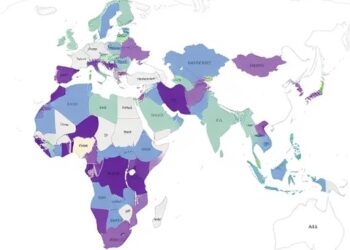Cyberattacks driven by Artificial Intelligence (AI) pose unprecedented risks to global economies, supply chains, and trade. A forthcoming study from the journal Risk Analysis explores the cascading impacts of AI-driven cyberattacks.
Cyberattacks driven by Artificial Intelligence (AI) pose unprecedented risks to global economies, supply chains, and trade. A forthcoming study from the journal Risk Analysis explores the cascading impacts of AI-driven cyberattacks.
Unlike traditional cyberattacks, which are typically manual or scripted, AI-driven cyberattacks utilize AI and machine learning algorithms to enhance their effectiveness, stealthiness and adaptability. AI-driven cyberattacks can autonomously learn and evolve their tactics, techniques and procedures based on real-time feedback and environmental changes.
Through simulation scenarios, the researchers discovered the potential economic ramifications of cyberattacks, focusing on regions heavily reliant on digital technologies and interconnected supply chains. The analysis revealed significant declines in real GDP, trade prices and volumes, and trade route disruptions across regions. The most vulnerable economies were China, the U.S., the U.K., and the E.U. – due to their deep integration into global networks.
The impact of AI-driven cyberattacks on global trade and economies is multifaceted and pervasive. The average cost of a data breach globally reached $4.24 million in 2021, according to the IBM Cost of a Data Breach Report. The World Economic Forum’s Global Risks Report 2022 identified cyber threats among the top risks concerning businesses and economies worldwide.
Impact on GDP
The study’s results depicted varying degrees of negative impacts on the real GDP of major regions under different cyber threat scenarios. For a low-level cyber threat, with limited breaches, the decrease in real GDP was relatively minor, ranging from 0.02 to 0.25%. China, Japan and South Korea experienced slightly higher declines in real GDP. These three economies account for around 20% of world trade, and are major mutual trading partners with strong intra-industry trade in manufacturing products.
For a high-level cyber threat, the U.S., the U.K., the E.U., China, Japan and India encountered more pronounced reductions in GDP. This demonstrates the heightened detrimental impact of a high-level cyber threat, resulting in more significant economic disruptions.
Impact on Trade Prices
Within the study all regions experienced deterioration in terms of trade, meaning their export prices rose less than their import prices from an AI cyberattack. Sharp declines in terms of trade occurred in countries with high dependency on digital technologies and strong interconnected supply chains (e.g. the U.S.). Economies that are more reliant on exports experience higher terms of trade deteriorations (e.g. China, Japan and South Korea) compared to other economies such as the U.K., India and Russia.
Impact on Trade Routes
In a high cyberattack scenario, major trade partners like China and the U.S. experience disruptions in their direct exchanges, prompting alternative routes and benefiting intermediary countries such as India, Japan, and nations in North & Latin America. China exports to the USA dropped sharply by -24% and its exports to the U.K. and the E.U. decreased by -4.5% and -3.2% respectively.
Research Implications
The findings underscore the urgent need for a global paradigm shift toward cyber resilience to mitigate the far-reaching consequences of AI-driven cyber threats on the interconnected global trade ecosystem. The study showcases the effectiveness of proactive measures like adaptable production systems, diversified trade partners, and robust cybersecurity infrastructure in mitigating the adverse impacts of cyberattacks.
“Incorporating cyber resilience significantly dampens the reported negative consequences, highlighting the critical role of preparedness in combating digital warfare,” says researcher Dr. Sherif Elgendy. “Collective efforts to bolster cybersecurity infrastructures, foster international cooperation in threat intelligence, and establish open and resilient trade frameworks are crucial in navigating the treacherous labyrinth of AI-driven cyberattacks.”
###
About SRA
The Society for Risk Analysis is a multidisciplinary, interdisciplinary, scholarly, international society that provides an open forum for all those interested in risk analysis. SRA was established in 1980. Since 1982, it has continuously published Risk Analysis: An International Journal, the leading scholarly journal in the field. For more information, visit www.sra.org.
Journal
Risk Analysis




